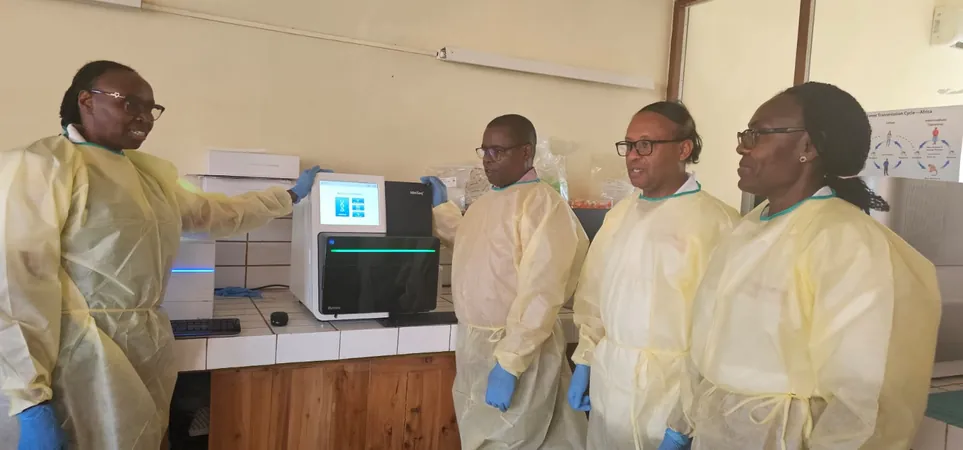
Africa CDC Amplifies Lab Capacity to Combat Mpox Outbreaks in Burundi
2024-10-10
Author: Li
In a significant step forward for public health in Africa, the Africa Centres for Disease Control and Prevention (Africa CDC) is bolstering the response to the Mpox outbreak through the enhancement of laboratory diagnostic capabilities. This effort underscores a crucial commitment to improving surveillance, case detection and management, sample referral processes, and infection prevention measures across the continent.
From September 30 to October 4, 2024, the Africa CDC collaborated with the Institut National de Santé Publique (INSP) in Bujumbura, Burundi, to conduct essential training sessions focusing on sample management, biosafety, and biosecurity. The workshops brought together a total of 32 participants, including health professionals from 14 provinces, signifying a robust commitment to building expertise in managing infectious diseases.
Dr. Yenew Kebede Tebeje, Acting Director at the Africa CDC, affirmed that this initiative aligns with broader efforts among African Union Member States to develop multi-disease detection systems. He emphasized the importance of strengthening laboratory systems to enhance early warning surveillance and rapid response to outbreaks.
The training encompassed practical skills in the safe collection, handling, and transportation of biological samples, as well as protocols for referring samples to appropriate laboratories. Biosafety measures were a focal point, designed to protect healthcare workers and communities from potential exposure to pathogens such as mpox.
One notable highlight of the training was the emphasis on biorisk management and bioethics, covering critical areas like the prevention of laboratory-associated infections. Participants were equipped with essential knowledge that not only supports the ongoing Mpox response but also reinforces overall health security in Burundi.
According to Professor Joseph Nyandwi, Director General of INSP, the lessons imparted during these sessions are paramount to ensuring the integrity and quality of lab testing for Mpox. "Handling dangerous pathogens requires a high level of professionalism and technical skill, especially during transportation," he commented. The emphasis on creating a culture of safety in handling biological agents is seen as vital.
The training program's impact extends beyond theoretical knowledge; it is expected that trained participants will implement these best practices in the field, ultimately improving the efficiency of sample referrals and bolstering biosafety protocols.
In conjunction with the training initiatives, the Africa CDC has bolstered Burundi’s response capabilities by donating vital equipment, such as Illumina MiniSeq sequencing systems, mpox qPCR testing kits, and other essential laboratory materials. This contribution is a game changer, enabling quicker and more reliable testing for Mpox and enhancing the national capacity for pathogen detection.
As healthcare systems in Burundi grapple with the ongoing threat of Mpox, these strategic enhancements by the Africa CDC are not only timely but critical in ensuring the country's preparedness and resilience against future outbreaks. The efforts speak volumes about the collaborative spirit in Africa's fight against infectious diseases and set the stage for a stronger health response across the continent.


 Brasil (PT)
Brasil (PT)
 Canada (EN)
Canada (EN)
 Chile (ES)
Chile (ES)
 España (ES)
España (ES)
 France (FR)
France (FR)
 Hong Kong (EN)
Hong Kong (EN)
 Italia (IT)
Italia (IT)
 日本 (JA)
日本 (JA)
 Magyarország (HU)
Magyarország (HU)
 Norge (NO)
Norge (NO)
 Polska (PL)
Polska (PL)
 Schweiz (DE)
Schweiz (DE)
 Singapore (EN)
Singapore (EN)
 Sverige (SV)
Sverige (SV)
 Suomi (FI)
Suomi (FI)
 Türkiye (TR)
Türkiye (TR)